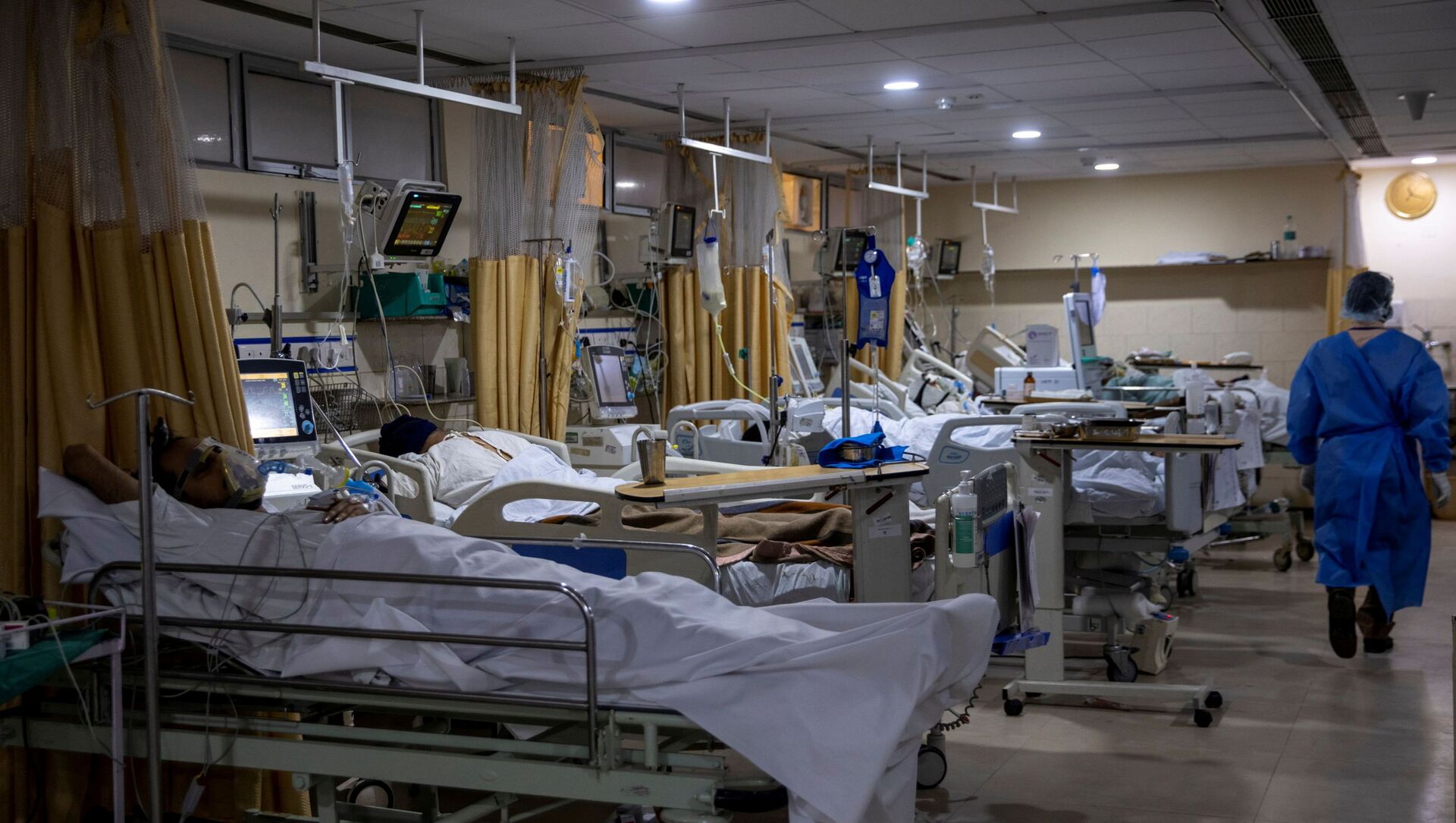Two patients who are being treatment for COVID-19 at Sir Ganga Ram Hospital in New Delhi have been diagnosed with mucormycosis of the small intestine, which is a rare condition.
“Both patients experienced pain in their abdomen. They had been tested positive for COVID-19 also and one of them had diabetes and also received steroids for treatment. The abdominal pain was earlier considered gastritis or stress-related and self-medication for acidity was taken which delayed the proper treatment by three days. A CT scan done later revealed that their small intestine (jejunum) had perforated,” Dr Ushast Dhir, a senior consultant at Sir Ganga Ram Hospital told Sputnik.
“Ulceration of Jejunum (first part of small intestine) in the patients (aged 68 and 59) raised my suspicion of fungal disease and the patients were immediately started on anti-fungal treatment. We sent the portion of the removed intestine for biopsy,” he added.
The biopsy report revealed that both patients are suffering from a similar infection – the first part of their small intestine (jejunum) is perforated, while ulceration of the surrounding area has also been diagnosed.
Mucormycosis or Black Fungus most commonly affects the rhino-orbital-cerebral system or the lungs. Intestinal or GI mucormycosis is a very rare disease and usually affects the stomach or large intestine – the majority of gastro-intestinal mucormycosis is seen in organ transplant recipients. The cases treated at Sir Ganga Ram Hospital are unique because the patients are COVID positive and the small intestine is infected, as opposed to the stomach or colon.



